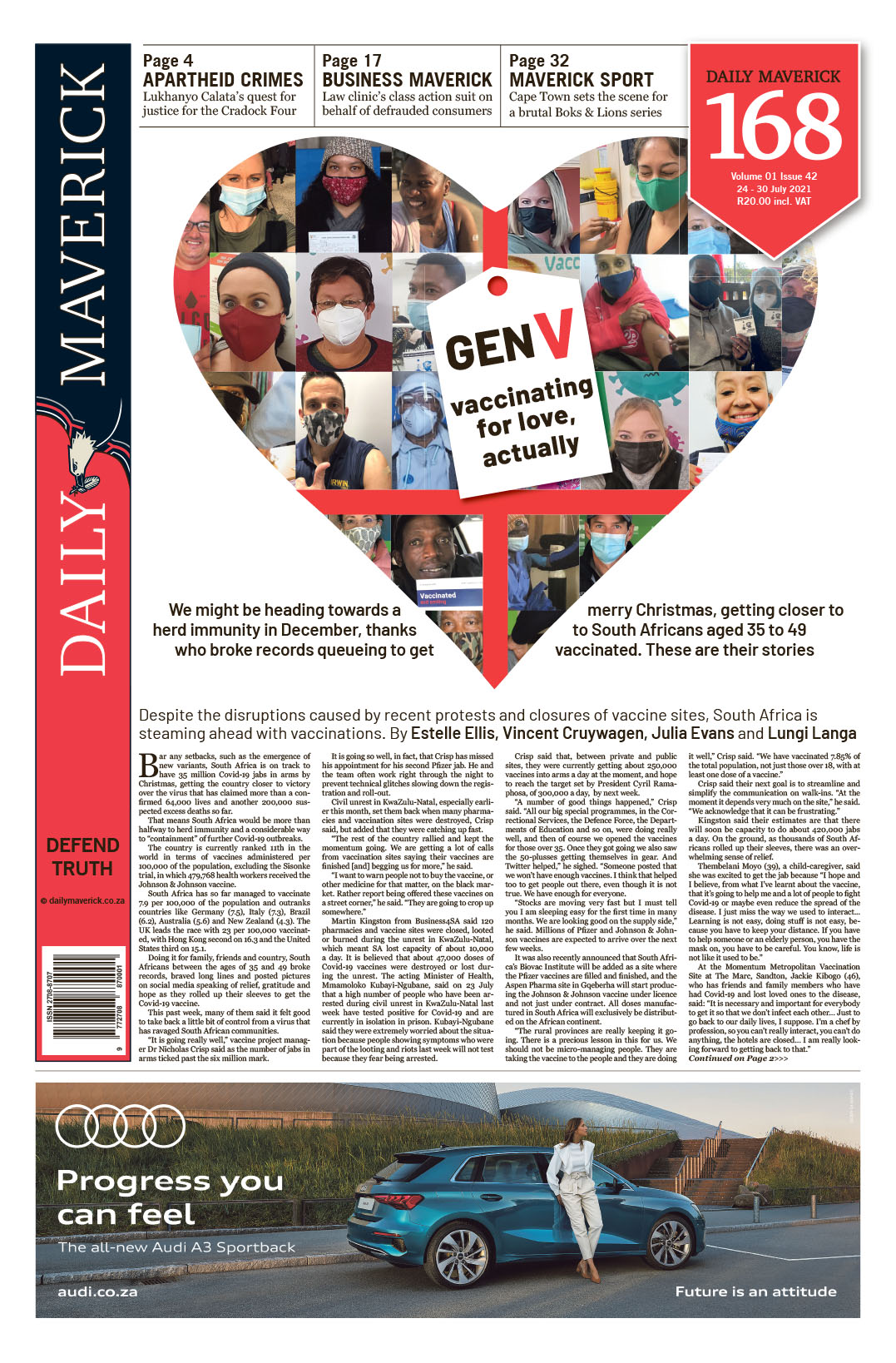First published in the Daily Maverick 168 weekly newspaper.
Parliament is in recess – in the wake of the public disorder over 10 days in July – and working in constituencies has been made a little easier by a quick fiddle with the State of Disaster lockdown regulations.
On 14 July, the ban on gatherings was lifted to allow a maximum of 50 people to attend a meeting called by elected public representatives such as members of Parliament (MPs) or political party leaders “for the exercise of oversight responsibilities and community engagement”.
Ministers and their deputies are also MPs, and thus covered by the amended lockdown regulations. Over the past 486 days of lockdown this Saturday, legislators were regarded as essential workers who could travel at will. But back to legislators, whose primary job it is to be parliamentarians.
That MPs seem eager to put in the hours emerged from the parliamentary cooperative governance committee. The Sunday Times recently reported that legislators put their foot down when faced with a complaint over the hours they keep – meetings usually took place from 7pm – and their frequency. At a special meeting, it emerged that none had actually complained and that, regardless of any political or institutional directives or complaints, the cooperative governance committee would continue quizzing local government.
After all, the state of affairs in South Africa’s 257 municipalities is appalling, with Auditor-General Tsakani Maluleke’s report only giving 27 councils a clean bill of financial health in 2019/20. Mangaung – one of the eight metros – couldn’t even submit financial statements.
The quality of work, from oversight to holding officials and ministers to account, may well be a different discussion. As is the predilection for secrecy by those MPs overseeing what the executive sphere of state dubs the justice, crime, peace and security cluster.
“Members of the portfolio committee on police will also join the Joint Standing Committee on Defence (JSCD) for a confidential briefing as the police and army will have joint operations,” says the official joint statement of Parliament’s police committee and the JSCD, announcing the oversight visit to KwaZulu-Natal and Gauteng, the centres of the recent public disorder.
It was not clear whether the committees obtained the required permission to sit behind closed doors before setting off. But if they didn’t, parliamentary rules allow for this decision at the start of the meeting.
The police committee is already firmly down the road of sitting not quite in public as required by rules and the Constitution. Its selection of Critical Infrastructure Council candidates failed to post CVs for public comment, as is tradition in such parliamentary nominations, while at least some deliberations on short-listed names took place away from the microphones that recorded the meeting to ensure a public record is kept.
The JSCD similarly defers to the generals, who much prefer not to talk, or account for, claiming everything is secret. Even if it’s not.
Defence Minister Nosiviwe Mapisa-Nqakula may have landed in hot water for labelling what’s officially an attempted insurrection as “counter-revolutionary thuggery”, but the minister stands with her generals on keeping schtum. “Accountability to South Africa, at one level, compromises security…” she told MPs at the 18 July meeting.
Her comments are not isolated. Earlier in July, Deputy Minister of Police Cassel Mathale told MPs that Parliament would be asked to limit disclosures in corruption and State Capture probes.
The default in the Constitution is openness, accountability and transparency. Or as section 59(2) says: “The National Assembly may not exclude the public, including the media, from a sitting of a committee unless it is reasonable and justifiable to do so in an open and democratic society.”
Politicians may well fall for the securocrat earworm that everything is confidential and secret, but Parliament cannot follow into that rabbit hole. Legislators must step up – to give life and meaning to the Constitution, and its founding values of equality, dignity, openness, accountability, transparency and responsiveness. DM168
This story first appeared in our weekly Daily Maverick 168 newspaper which is available for free to Pick n Pay Smart Shoppers at these Pick n Pay stores until 24 July 2021. From 31 July 2021, DM168 will be available for R25 at Pick n Pay, Exclusive Books and airport bookstores.
















 Become an Insider
Become an Insider
Comments - Please login in order to comment.